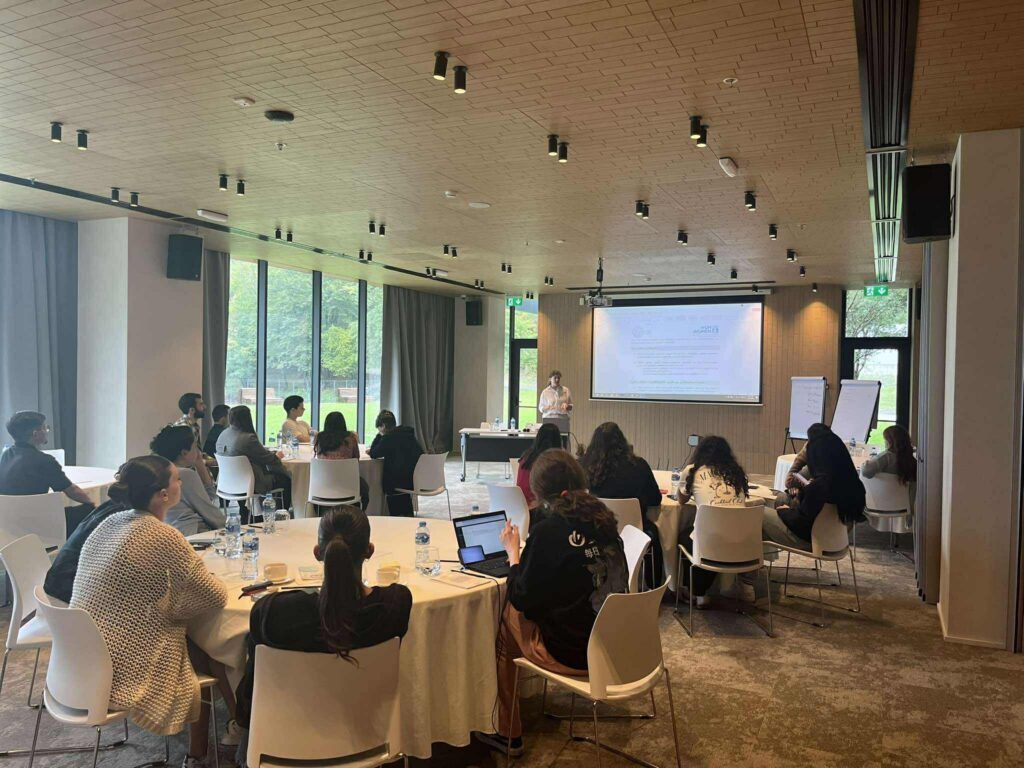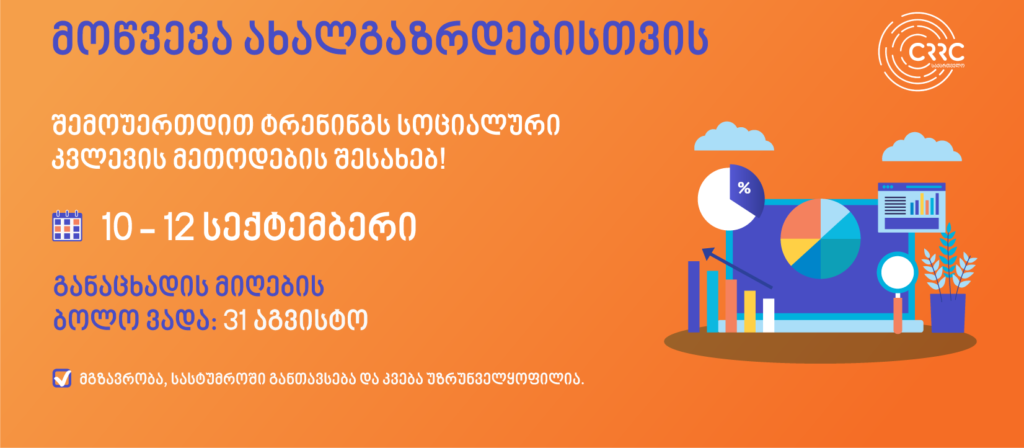How justified is it for Georgian women to bear a child or have sex outside of wedlock? Is the Georgian population tolerant towards homosexuals? What are views on issues such as these in the light of the western-oriented political course of the country? How do men and women compare in terms of liberal attitudes? To address these questions, this blog post presents the results from two waves of a nationwide public opinion survey entitled “Knowledge and Attitudes toward the EU in Georgia” conducted by CRRC in 2009 and 2011. The data indicates that attitudes towards women having sex or bearing a child without being married have slightly changed in a more liberal way over the past two years, yet social conservatism remains deeply rooted in Georgia. Georgians remain generally unaccepting of homosexuality. Also, Georgian women seem to have more conservative attitudes towards particular issues than men.
Social values are quite static and two years is a very short period to speak about value changes. Yet the data still suggests some interesting trends indicating that certain values related to women having sex or bearing a child without marriage are slightly changing in a more liberal way, while other attitudes such as tolerance of homosexuality remain unchanged. CRRC data shows that 50%-64% of Georgians think that it is never justified for an unmarried woman to bear a child or have sex. Also, vast majority of Georgians think homosexuality is never justified.

As the chart shows, the number of Georgians who think that it is always or sometimes justified for a woman to give birth without being married has increased from 30% to 42%, while the number of people who think it is always or sometimes justified for a woman to have sex before marriage has increased from 15% to 28%. When the same question was asked about men in 2011, over half (57%) of the population said that it is always or sometimes justified for man to have sex before marriage. These results suggest that to some, men having sex before marriage is more justifiable in Georgia than woman doing the same. These slight changes within the past 2 years cannot be generalized to the entire range of social questions asked in the survey. For example, 90% of Georgians think that homosexuality can never be justified and this result has remains unchanged since 2009. This is one indicator that social conservatism is still deeply rooted in Georgia.
Examining the data by gender shows that Georgian men and women equally condemn homosexuality and their attitudes related to woman bearing a child without marriage are also similar. However, there are some differences in values related to people having sex before marriage by gender.

The data indicates that having sex before marriage is more justifiable for men than for women. 33% of Georgian men think that is always justified for a man to have sex before marriage, while this share decreases to 18% for women to do the same. However, it is also worth noting that 25% of Georgian men say that a man having sex before marriage can never be justified.
When asked about women having sex before marriage 57% of Georgian men think this is never justified and 70% of Georgian women say the same. Thus, Georgian women are even more conservative on this question. Moreover, over half (51%) of Georgian women agree that is always or sometimes (percentages added) justified for a man to have sex before marriage, while only 25% think that this can be justifiable for a woman as well.

The results suggest that even though there is a slight shift towards liberal values concerning women bearing a child or having sex without marriage, social conservatism still prevails. Tolerance of homosexuality remains extremely low over the past two years. Exploring the data by gender shows that while men and women share similar values and attitudes towards certain issues such as homosexuality and woman bearing a child without marriage, Georgian women have more conservative attitudes towards having sex before marriage than men.
The questions discussed in this blog post can be considered sensitive in Georgian society. Yet, these results are a good starting point for a healthy discussion on these issues. Feel free to share your thoughts with us and find out more on this topic via CRRC’s Online Data Analysis tool.







